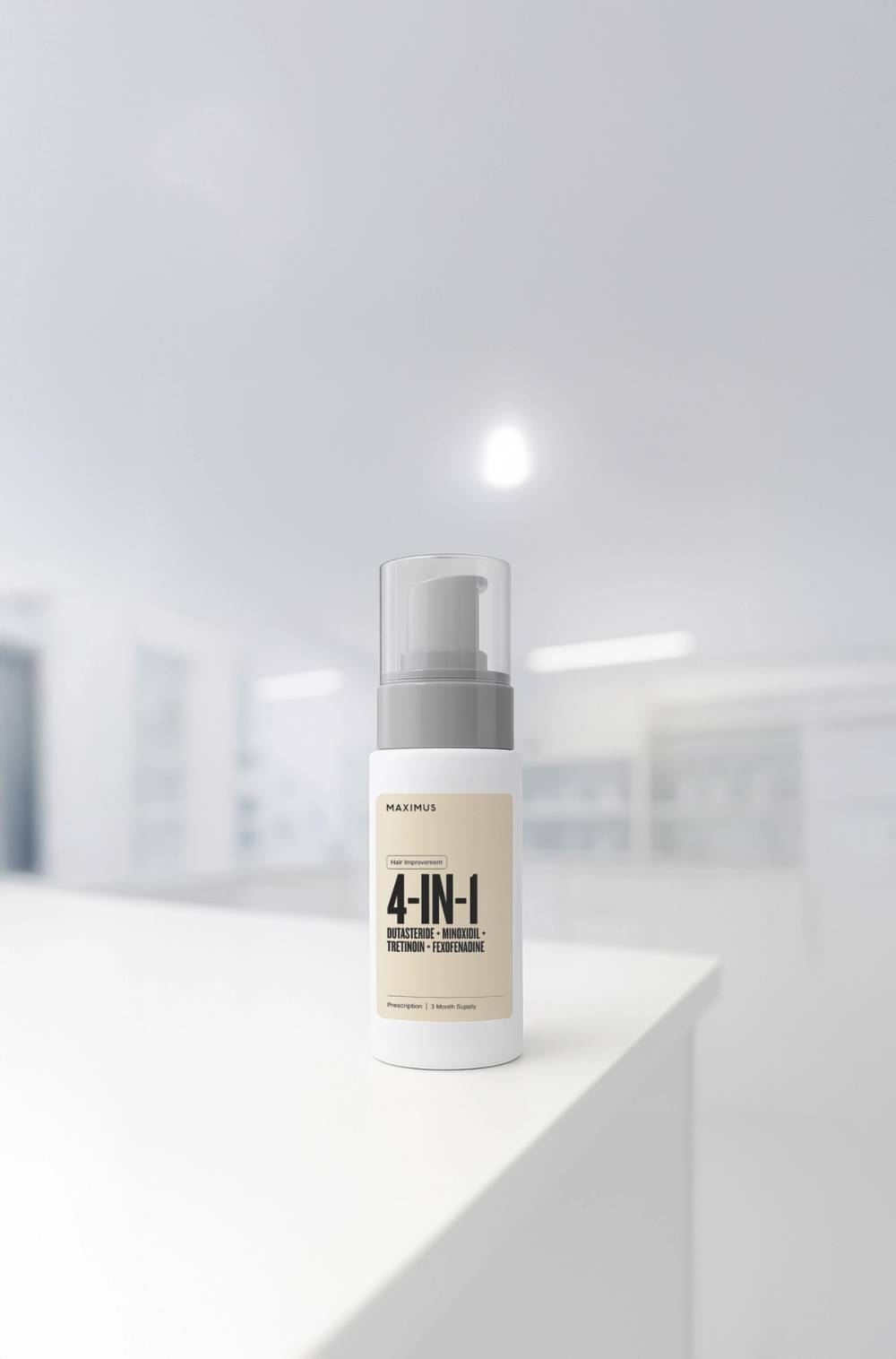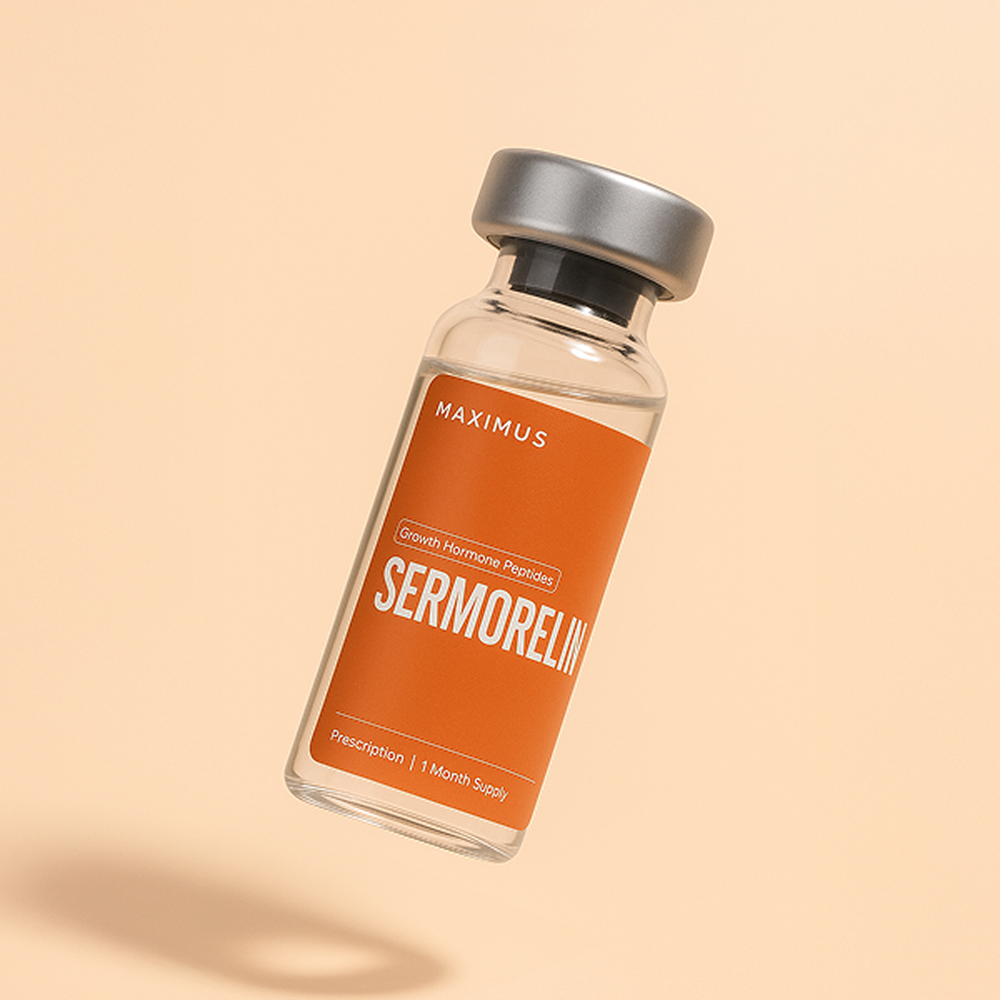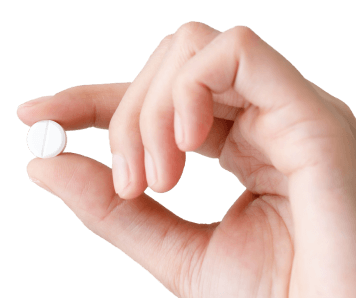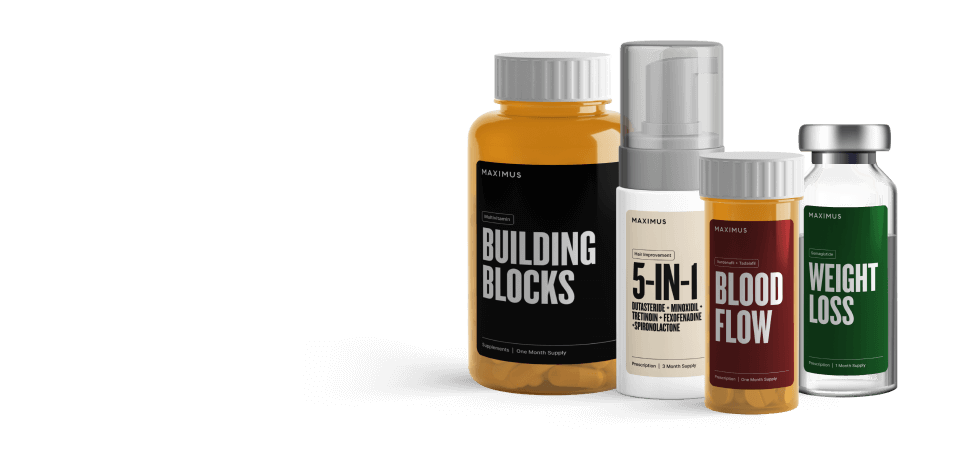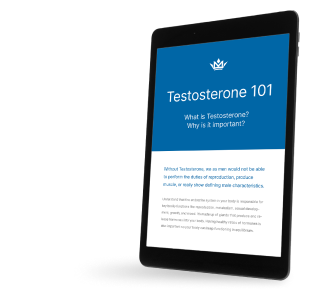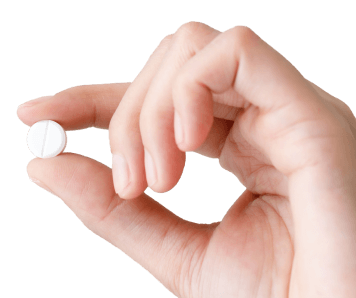Key takeaways:
- Research suggests a link between high caffeine intake and lower testosterone levels.
- Consuming more than 800 mg of caffeine per day, especially from cola, may also lower sperm concentration and total sperm count.
- Caffeine can indirectly impact testosterone production and overall health by disrupting sleep patterns, raising cholesterol levels, and increasing stress.
- Consider healthier caffeinated beverages, like hot chocolate made from unsweetened cocoa, matcha, and green tea.
If you can’t imagine starting your day without coffee, you’re in good company. A recent poll found that three-quarters of American adults drink coffee, and most consume at least one cup per day. But while that caffeine may wake you up, there may be a chance it’s also dragging your testosterone down, especially if one cup leads to another, and another, and another...
Don’t worry — we’re not asking you to dive into your day without a caffeine jolt, but we are going to share some better ways to get it, and why you should be especially cautious of caffeine if you’re trying to raise your T levels.
How caffeine impacts testosterone
Studies show a connection between high caffeine consumption and low testosterone, which may be due to how caffeine interacts with adenosine receptors that are found in both the brain and the testes. When caffeine blocks adenosine receptors in the brain, you may feel more awake, but when it blocks adenosine receptors in the testes, there’s a chance it may disrupt certain pathways that normally help produce testosterone.
And testosterone’s not the only thing at risk. Research looking into the potential impact of caffeine from different sources shows that consuming more than one liter of cola per day can potentially lower semen quality. However, this is likely attributed to a less healthy lifestyle, not the caffeine in the soda. In the same study, low or moderate caffeine consumption — less than 8-10 cups of coffee per day — didn’t reduce semen quality.These findings allow us to see that moderate caffeine consumption may not be that risky, and that some caffeinated beverages may be safer than others.
In fact, some research shows that small amounts of caffeine may actually increase testosterone. Like with sperm, the negative effects on testosterone are only apparent with high caffeine consumption. And a small study found that even high amounts of caffeine can increase testosterone, but only when consumed before exercise.
How caffeine impacts your overall health
Indirectly, caffeine can hurt your testosterone levels and your overall health — such as by wrecking your sleep and increasing stress. Here’s what the research says:
- Caffeine wrecks sleep: Studies show that caffeine reduces total sleep time by 45 minutes, sleep efficiency by 7%, and adds 9 minutes to sleep onset. Poor sleep has long been associated with low testosterone levels, but it also increases your risk of health conditions like diabetes, obesity, and cardiovascular disease.
- Caffeine increases stress: Testosterone isn’t the only hormone affected by caffeine; studies show caffeine also increases the stress hormone cortisol — although the effects may be reduced with daily caffeine consumption. High cortisol can increase your risk of heart disease and may suppress your testosterone production.
The lesser evil: Choosing a better caffeinated beverage
Before you give up caffeine for good, you should know that some sources are better than others. We’ve already indicated that soda can be problematic, but what about coffee or tea? Here are some alternative caffeine sources to consider, ranked from the least to most risky:
- Hot chocolate: We’re not talking about the sugary stuff you might have sipped as a kid. Opt for unsweetened, non-dutched cocoa to benefit from cocoa flavanols, which are antioxidants that can boost your brain health and may lower your BMI. Compared with coffee, many types of tea, and soda, studies show that the caffeine content of cocoa is much lower.
- Matcha: This powdered form of Japanese green tea may have a high caffeine content, but its effects are counterbalanced by l-theanine, an amino acid known to reduce stress.
- Green tea: Like matcha, standard green tea also contains l-theanine to counterbalance its caffeine content.
- Coffee: While coffee has fewer health benefits than the beverages listed above, when consumed in moderation, it shouldn’t be too detrimental to your T levels. Aim to drink your coffee without sweetener and definitely don’t go beyond 800 mg of caffeine (eight or more cups of coffee) each day.
Dr. Cam’s Health Hack:
If you rely on caffeine to boost your energy levels, you may want to get your testosterone levels checked. Here’s what Dr. Cam has to say:
“Most men who drink coffee are using caffeine to mask their low energy, not realizing: The root cause of their Low Energy is actually Low Testosterone! When you optimize your T, you awaken to how high energy you can be on 0-1 cups of coffee per day.”
Disclaimer: The contents of this article, including, but not limited to, text, graphics, images, and other information, is for information purposes only and does not constitute medical advice. The information contained herein is not a substitute for and should never be relied upon for professional medical advice. The content is not meant to be complete or exhaustive or to be applicable to any specific individual's medical condition. You should consult a licensed healthcare professional before starting any health protocol and seek the advice of your physician or other medical professional if you have questions or concerns about a medical condition. Always talk to your doctor about the risks and benefits of any treatment. Never disregard or delay seeking professional medical advice or treatment because of something you have read on this site. Maximus does not recommend, endorse, or make any representation about the efficacy, appropriateness, or suitability of any specific test, products, procedures, treatments, services, opinions, healthcare providers or other information contained herein. Maximus is not responsible for, nor will they bear any liability for, the content provided herein or any actions or outcomes resulting from or related to its use.
